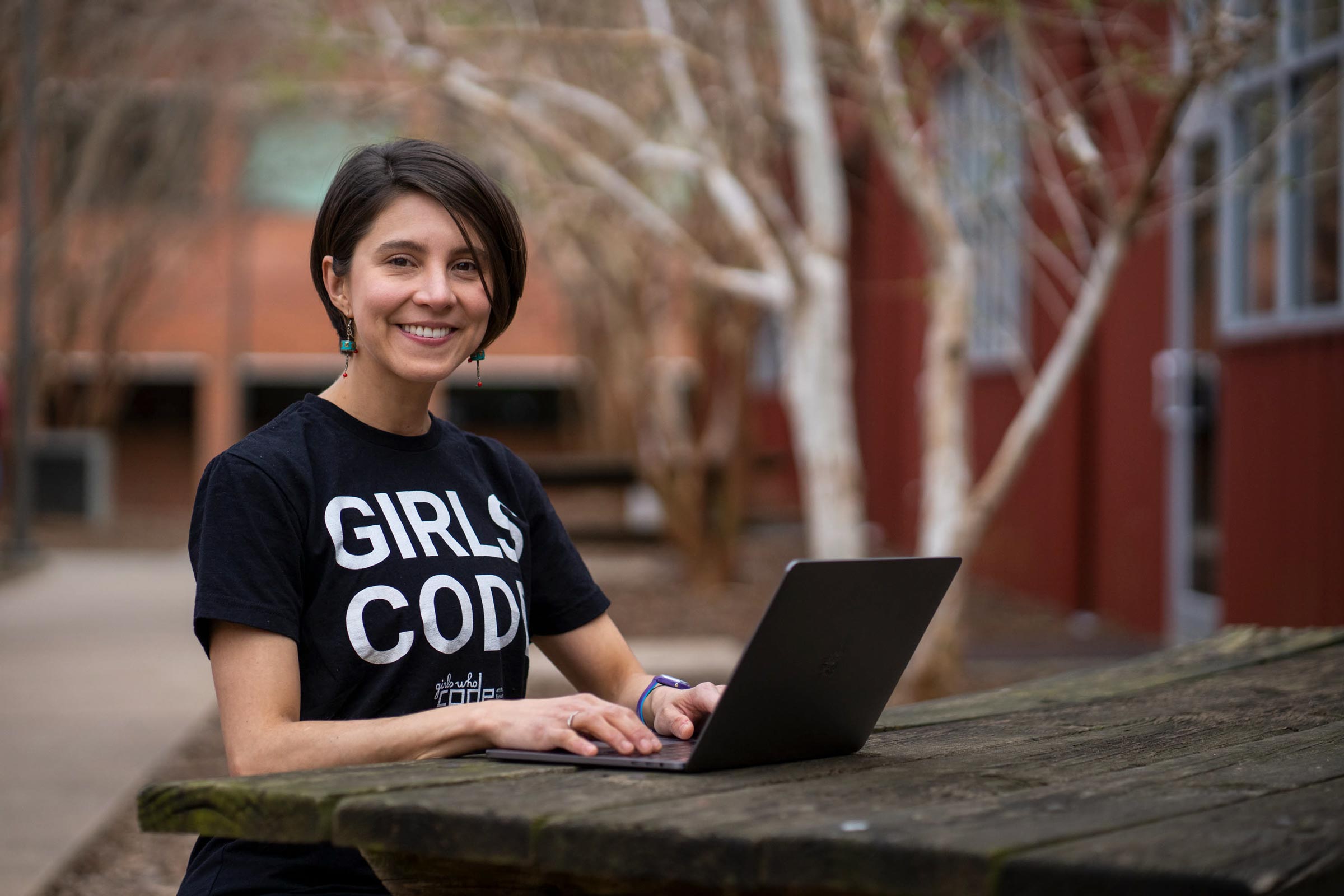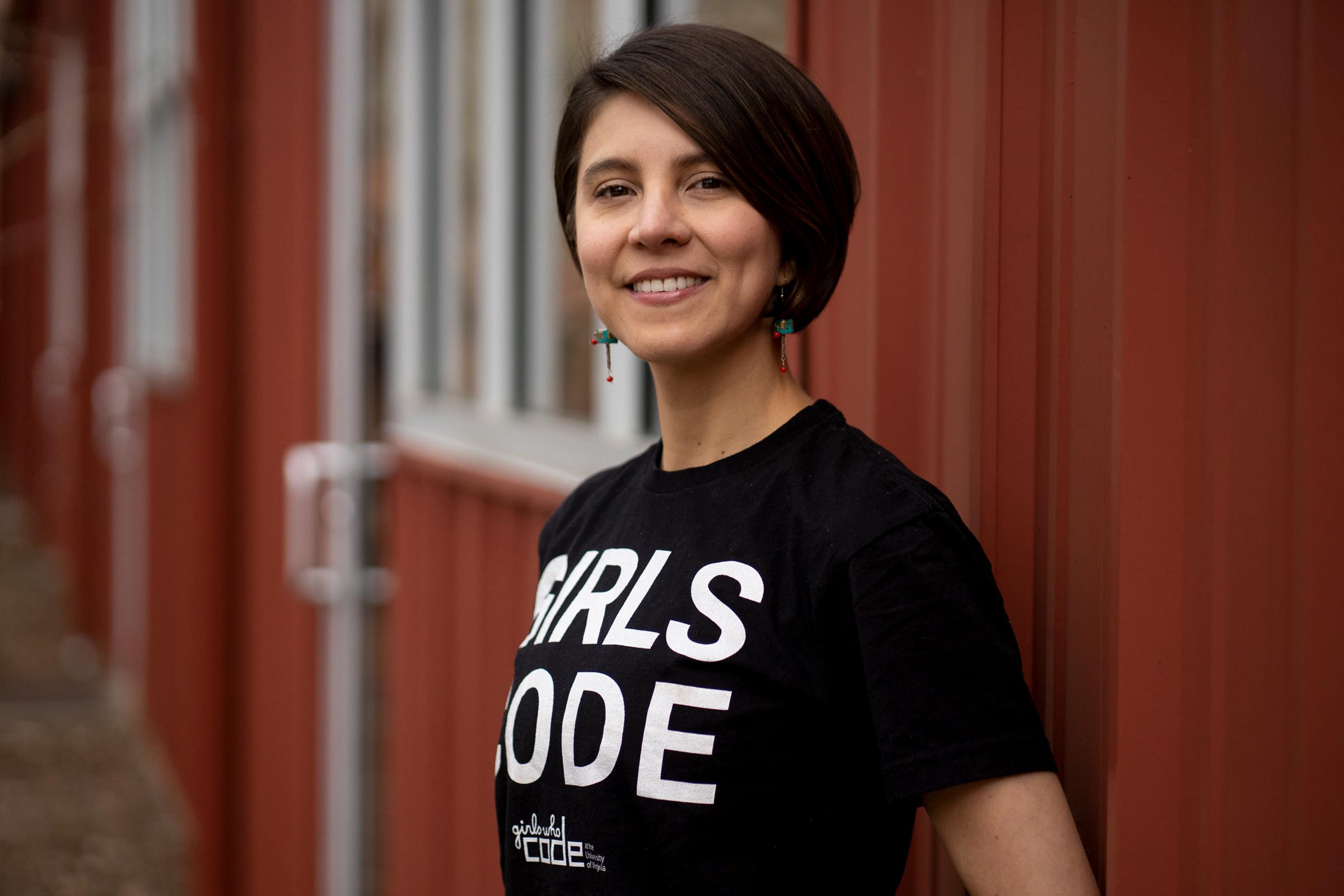Karolina Naranjo-Velasco, a graduate student at the University of Virginia, is poised to graduate May 22 with an M.S. in data science. And though she hasn’t yet turned her tassel, she’s already applying data science to a legal research project in her native Colombia that champions justice.
Naranjo-Velasco studied law and worked as a civil servant and human rights lawyer in Colombia before coming to the United States to pursue a master’s degree in public policy. But the programs she considered lacked the tools and techniques to make informed policy design, in her assessment. It became evident to her that she needed to switch her studies, and focus, to data science.
“My country is plagued by cycles of poverty and violence,” Naranjo-Velasco said. “I came to the realization after studying law and practicing that there wasn’t a strong culture in Colombia, as in most of South America, of evidence-based policy decision-making. That’s when I decided to switch my master’s to data science.”
She applied and was accepted to UVA’s School of Data Science. After taking the prerequisite courses and an introduction to coding, she knew it was the right decision.
“I surprised myself and found I actually enjoyed coding,” Naranjo-Velasco said. “Little did I know that this was just the beginning of what I was going to learn.”
The 11-month, residential master’s teaches students essential data analytics topics such as natural-language programming, machine learning, text analytics and deep learning.












